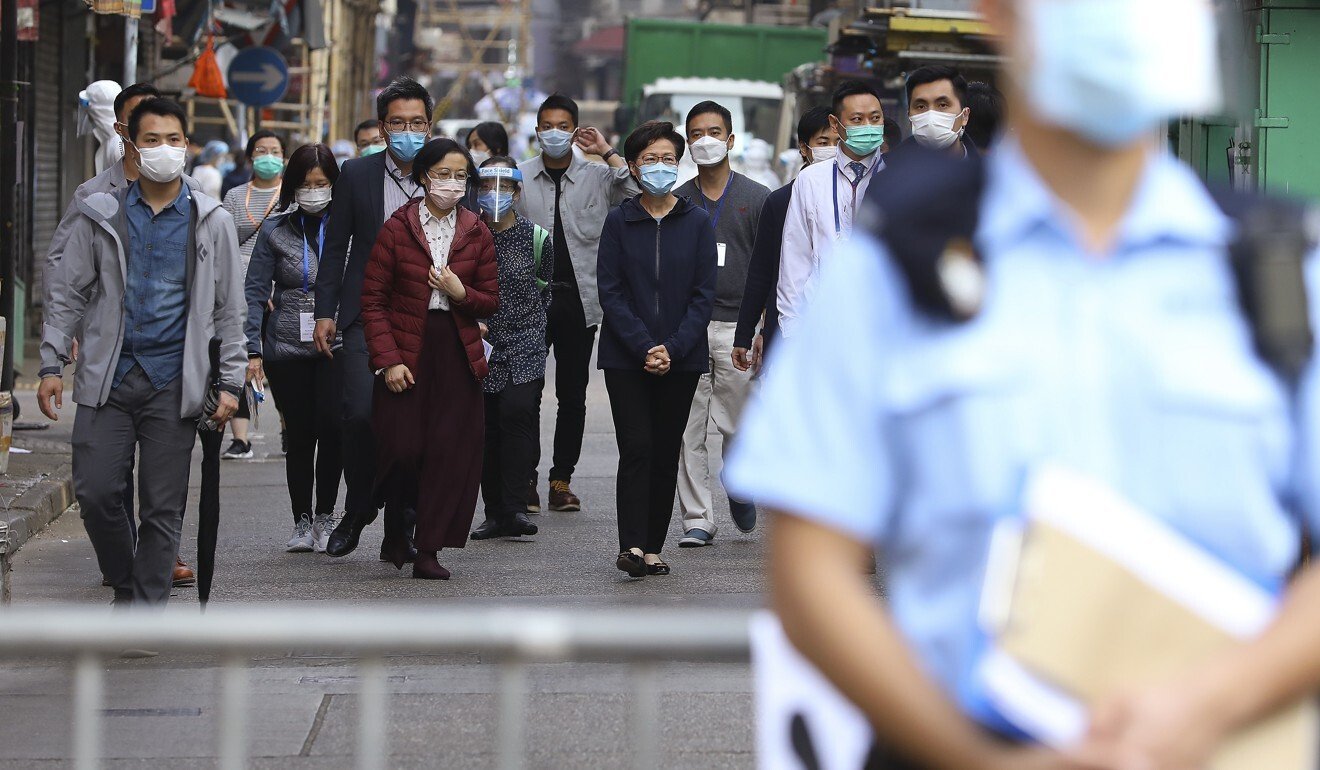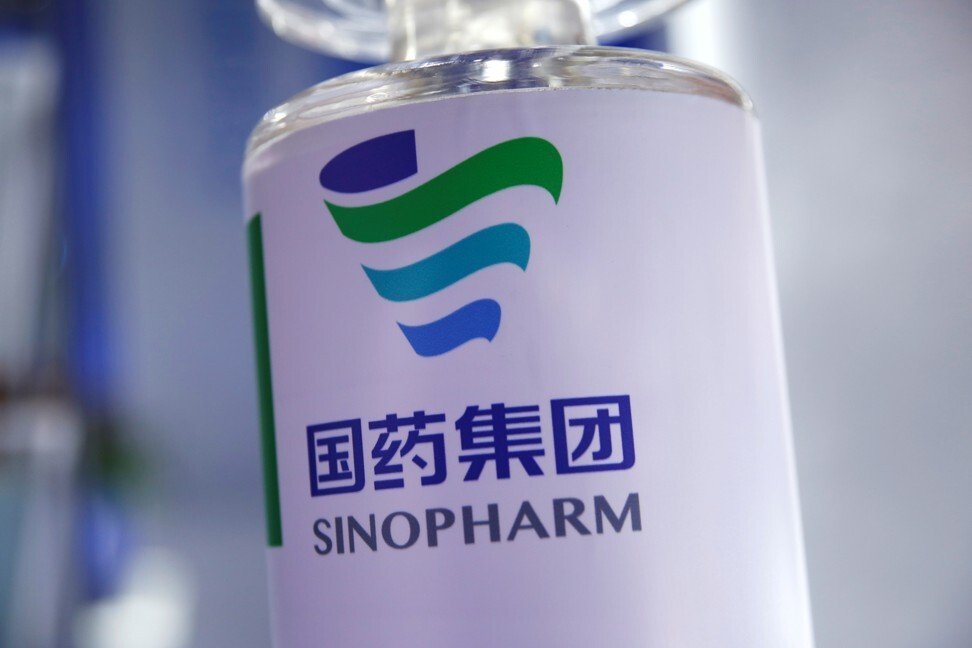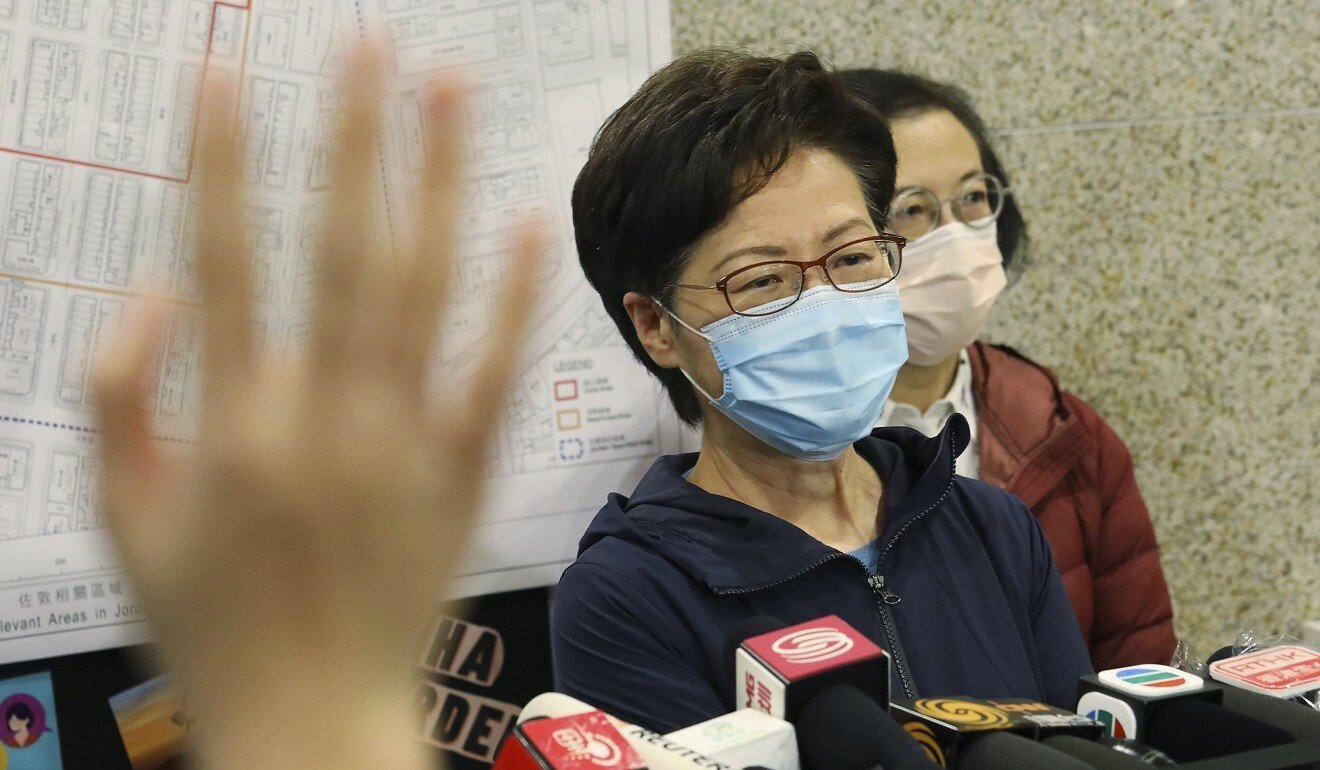
Another Hong Kong lockdown ends as Beijing’s help sought on Covid-19 jabs
The lockdown of another Hong Kong neighbourhood for mandatory Covid-19 testing came to an end at 6am on Wednesday as the city continued to target areas filled with ageing tenement buildings amid a recent surge in infections.
The sudden lockdown on Tuesday night came just hours after the city’s leader revealed she had sought Beijing’s help in securing Covid-19 shots from state-owned Sinopharm following “hiccups” in the procurement of other vaccines already purchased by the government.
One resident of Hong Kong’s Yau Ma Tei area was known to have tested positive after about 330 people had completed the mandatory testing, according to a government statement. The infected resident was sent to hospital for treatment and the patient’s close contacts were quarantined.
Health authorities visited 306 households in all, but there was no answer at 93. The authorities said they will continue to follow up with the unresponsive residences.
The unexpected lockdown of 11 blocks at 9-27 Pitt Street and Shun Fung Building at 3 Tung On Street in Yau Ma Tei started at 7pm, following Chief Executive Carrie Lam Cheng Yuet-ngor’s warning earlier in the morning that the government would go for “ambush-style” lockdowns.
The city’s first such lockdown was off to a questionable start last weekend after the news was leaked by the media an entire day in advance, giving residents of affected buildings plenty of time to move out and avoid being confined to their homes for 48 hours.
Tuesday’s move was announced at the last minute to avoid a repeat of residents escaping mandatory testing.

Earlier in the day, Hong Kong had confirmed 64 new Covid-19 infections citywide as two more neighbourhoods were placed under stepped-up mandatory testing orders in Mong Kok and Hung Hom districts, and existing social-distancing measures were extended by another week.
On the vaccine front, Lam said delivery of the first batch needed to roll out a mass vaccination programme would be deferred until at least the end of next month, contrary to earlier assurances it could begin after the Lunar New Year holiday in mid-February.
But advisers warned Lam’s latest plan would not speed up the roll-out, as Sinopharm had yet to publish any third-round clinical data in medical journals, with one expert stressing the widespread use of the vaccine in mainland China would not be a factor in considering emergency approval for Hong Kong.
“We have been very concerned about the supply of vaccines for Hongkongers, because this is really the light at the end of the tunnel,” Lam said ahead of her weekly Executive Council meeting.
According to Lam, the administration had experienced difficulties in securing doses of the BioNTech vaccine from Europe, Beijing-based Sinovac’s CoronaVac and the jab jointly developed by AstraZeneca and Oxford University despite having advance purchase agreements in place.
“They all have a little bit of a hiccup. For the one that has been authorised by the secretary for food and health … the supply will only come by the end of February from Germany,” she said, referring to the BioNTech shots.
Health minister Professor Sophia Chan Siu-chee said manufacturing of the first batch of BioNTech vaccines for Hong Kong had been completed, while safety and quality tests were under way.
“If all the tests are finished smoothly and are passed, then they are expected to be delivered from Germany to Hong Kong in the second half of February,” Chan said.
Under government plans, priority for 1 million BioNTech doses, the first batch of vaccines to arrive, will be given to high-risk groups starting with staff and residents of care homes for the elderly, followed by hospital workers and other old people.

The supply of CoronaVac doses, originally scheduled for delivery by the end of January, had also been delayed, while the ones from AstraZeneca would not arrive until the second half of the year, Lam added.
“But at the same time, we have a desperate need for vaccination among high-risk groups and cross-border workers,” she said.
“With those considerations in mind, I triggered [an agreement] when I visited Beijing last November, that if there was a need in Hong Kong, the chief executive could always approach the central people’s government for help in trying to secure a mainland-developed vaccine for Hong Kong.”
Altogether, the city has bought 7.5 million doses each from Sinovac, BioNTech and AstraZeneca.
The vaccine Lam has requested, developed by the Beijing Institute of Biological Products under the China National Pharmaceutical Group (Sinopharm), was conditionally approved by mainland authorities in December.
The authorities said the vaccine, which is one of three approved for emergency use on the mainland and employs the dead virus to help develop an immune response in users’ bodies, had similar rates of adverse effects to other such brands.
According to their trial results, less than 0.1 per cent of subjects experienced mild fevers while serious allergic reactions occurred in about two per million people. Last month, Sinopharm told the press its vaccine had 79.34 per cent efficacy, a non-peer-reviewed rate based on an interim analysis of phase-three clinical trials.
The vaccine has been rolled out across the mainland – pending full results of third-stage clinical trials – with about 200 pro-Beijing politicians in Hong Kong having received their first doses last week on a trip to Shenzhen, as part of precautions before attending the plenary sessions of China’s legislature and its top advisory body in March.
Sinopharm’s vaccine has also been approved in several Middle Eastern and Asian countries, and is making inroads in poorer nations in Europe.
Lam noted that Sinopharm had yet to disclose the data. Asked how she would win over experts and public acceptance, she said: “[The vaccine] would come under the same legal regulatory framework, but it is too early to say. We will see how things develop.
“All in all, I can tell you that rolling out an orderly inoculation is my responsibility and I will do my very best for it. The central government has also shown its resolve to help Hong Kong.”

But Chinese University respiratory medicine expert Professor David Hui Shu-cheong, who advises the government on Covid-19 vaccines, said Lam’s plan to rope in Sinopharm would not speed up Hong Kong’s roll-out, as the city had a “very stringent” approval process which required submission of third-stage data in medical journals.
“There are no short-cut or corners to cut in this,” he said.
Hui also said Sinovac, maker of CoronaVac, the other mainland vaccine that Hong Kong had already procured, did not seem to have any incentive to submit its third-stage data to local authorities for regulatory approval soon, as it had received many purchase orders worldwide and gained approval in Indonesia, Turkey, Brazil and Chile.
He said Hong Kong’s contract with the firm would only be “activated” if the data met necessary requirements, adding he believed a deadline clause had been set.
Sinovac’s partner in Brazil, the Butantan Institute, earlier announced a 50.4 per cent general efficacy rate, offering protection against severities caused by Covid-19, and also mild cases not requiring treatment.
The company has since sought to clarify its findings by stating that the CoronaVac was 100 per cent effective in protecting against severe cases, and 78 per cent effective in shielding people from symptoms that required treatment.
Meanwhile, Professor Ivan Hung Fan-ngai, who is advising the government on its vaccination plan, told a Tuesday morning radio show that the most important thing for adopting a vaccine, whether it came from Sinopharm or Sinovac, was the third round of clinical data.
“Without this information, it is difficult for the [government’s vaccination] committee to vet and recommend its use. People’s health is the most important consideration,” he said.










